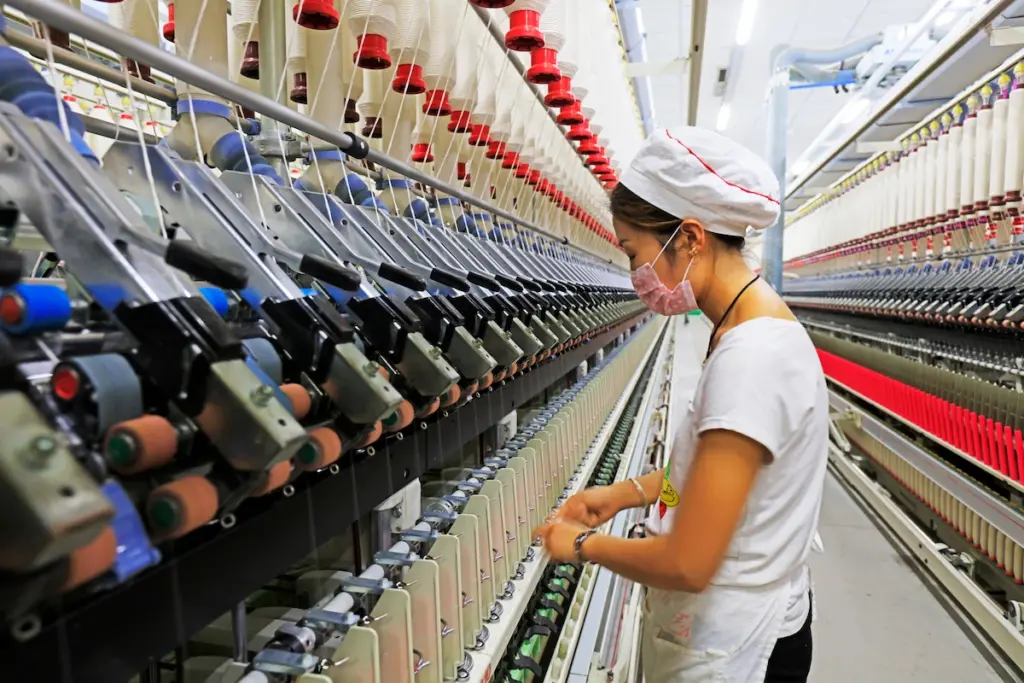
The US is likely to avoid a recession this year, according to Goldman Sachs wealth chiefs who highlighted the country’s economy’s resilience amid higher interest rates — and the long-term potential of artificial intelligence (AI).
US defies recession expectations
‘We’ve been in the soft-landing camp, and we continue to be in the soft-landing camp and actually increased our confidence in that forecast over the last few months,’ said Jan Hatzius, chief economist and head of global investment research said at the bank’s mid-year outlook.
[See also: Why HNWIs’ bank accounts are being closed ‘without explanation’]
The investment bank now sees a 20% probability of US recession in the next 12 months, down from 25%-35%. That is more bullish that the majority of economists who expect a downturn, according to the Wall Street Survey’s latest report.
‘To us, the economy continues to look quite resilient,’ he added, pointing to low numbers of layoffs, an ‘impressive’ growth in real disposable income and a smaller drag on growth than expected from tighter monetary policy.’

Pointing out that ‘inflation actually already has come down a lot without a recession so far’ in the US, his best guess was an ‘unspectacular’ growth rate of 1.5% to 2% in the world’s largest economy, which has a major impact on global economic fortunes.
Sharmin Mossavar-Rahmani, head of the investment strategy group and CIO of wealth management, added that their recommendation was to remain invested in US equities, even after the remarkable first half rally which saw the tech-driven Nasdaq rise 32%, its best first half in 40 years, and S&P 500 rise 16%.
‘I think the market is probably a little bit too pessimistic about earnings across the board,’ she added. The bank remains overweight in the US.
[See also: Cash-rich family offices looking to deploy capital, says Goldman Sachs]
Economic divergence with China
Despite US recession worries waning, Mossavar-Rahmani highlighted the growing economic divergence with China.
‘If we say the fog has lifted in the largest economy in the world, the US, the fog is certainly thickening in China, the second largest economy in the world.
‘Our first report on China was in 2016, and when we compare that to today, it’s a huge difference. First, the standard pillars of growth are no longer viable, whether it’s the property sector, infrastructure, investment and exports,’ she said.

‘Second, there have significant domestic headwinds. As we all know, demographics are pretty poor. We know reforms have stalled, and there’s huge policy uncertainty on a global basis when there’s that much economic policy uncertainty.’
Such ‘significant headwinds’ will affect countries that significantly depend on China for exports, she added.
Are we heading for an AI revolution?
AI proved a key talking point as Hatzius noted the huge potential boost to productivity — and therefore economic growth — in the coming years.
‘Our baseline estimate in our central scenario is an added one and a half percentage points of labour productivity growth, which would be comparable to the productivity growth boosts that you saw in the personal computer and internet revolution in the 1990s or the adoption of electricity in the 1920s,’ he said. ‘Similar order of magnitude.’
Hatzius acknowledged the need to be ‘very humble in terms of your ability to predict’ what AI can achieve.
But Goldman’s assessment of the ‘very sizeable’ potential of AI rests on the huge amount of mundane, rather than creative, tasks which take up a lot of workers’ time.
‘There is a lot of not-so-creative work that also has to get done,’ said Hatzius, ‘such as filling out forms, building routine models, some parts of coding, writing emails, things that are probably quite easily replaced eventually, or at least greatly enhanced by AI.’
[See also: The FTSE at 40: Calls for ambitious reforms to regain global prominence]

Goldman Sachs estimates AI might achieve a replacement of as much as a quarter of current work tasks or work hours on a 10- to 15-year time horizon.
An important question centres on how the free time is used — are workers deployed elsewhere or simply replaced? ‘How productively is it [AI] used?’ said Hatzius.
‘And then, for the smaller group of workers who are actually displaced by AI, how quickly are they reintegrated into the labour market?’
Age of alternatives
The volatility of the last couple of years has demonstrated the power of alternative investments when it comes to dampening liquidity and providing diversification, Julian Salisbury, CIO of asset and wealth management said.
Private credit has been an area of hot market interest during the hiking cycle this year and continues to be a strong long-term focus for Goldman’s wealth business.
‘It’s a great source of income. You are getting real liquidity and credit premium versus what’s available in the public markets,’ said Salisbury.

He added that the bank is preparing to capitalise on opportunities in real estate as the commercial and residential housing market comes under increasing pressure.
‘I think we’re in the first innings of a correction there. You’re starting to see signs of keys getting handed back and there’s about $1.4 trillion of debt that comes up for maturity between now and the end of next year,’ he said.
[See also: ‘My father’s succession planning took two decades – now I help other wealthy families’]
‘We’re certainly readying ourselves with capital to start prosecuting opportunities in that space. I think first led around credit, but I think subsequently there’ll be opportunities in the equity space.’
The private equity market is more mixed, with companies choosing to wait before striking deals, favouring take-privates and more use of continuation vehicles at a time of lower valuations.
This is likely to persist after last year’s public markets selloff. Salisbury said it can take as long as three years for valuations to get fully reflected in private markets.
‘There will be a greater spread of outcomes with those that were more exposed, for example, to late stage growth, very highly valued growth companies. That was the most extreme bubble in 2021.’






